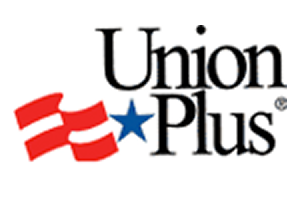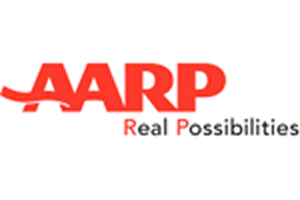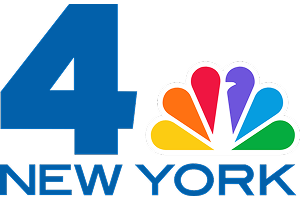800.696.9529
Nassau County Bankruptcy Lawyer
There are thousands of New Yorkers who are generally fiscally responsible with excellent credit ratings who end up facing mountings bills that they know they cannot pay. It is not uncommon for personal debt to spin out of control due to unexpected challenges such as job loss, illness, or death of a spouse. In other instances some people end up with debt problems due to overspending. Whatever the reason for your debt and inability to pay, creditors have little sympathy. They want to get paid. Fortunately, there are options to help those in deep debt to manage the debt or eliminate a significant amount of it. One such option is filing bankruptcy. Filing for bankruptcy can allow you to completely eliminate most of your debt or it can allow you to restructure your debt to make payments to your creditors manageable.
While bankruptcy may be an attractive option for you, there are other methods to consider for helping you to manage overwhelming debt. Debt relief methods such as debt consolidation and debt settlement offer ways to manage your debt without going through the process of bankruptcy. With debt consolidation you take out a loan that you use to pay off several small loans and credit cards. You will end up with a single, manageable monthly loan payment. With debt settlement you make agreements with your individual creditors to pay off less than the total amount that you owe. If you are facing overwhelming debt, it is important to immediately contact an experienced Nassau County Bankruptcy Lawyer who will review your case and explain to you the bankruptcy process as well as other options for managing your debt.
Bankruptcy
Bankruptcy, largely governed by federal law, is the process that is overseen by a bankruptcy trustee and it allows individuals to eliminate some or all debt or reduce debt payments. There are 2 main types of personal bankruptcy: chapter 7 liquidation and chapter 13 reorganization. Chapter 11 bankruptcy is not available to individuals, but is an option for businesses. Both chapter 7 bankruptcy and chapter 13 bankruptcy have rules regarding which debts are covered, requirements for filings, and what property is exempt from creditors. For example, student loans, child support, and spousal support are unaffected by bankruptcy. While bankruptcy may be the best course to address your debt challenges, there are a number of other options to help manage debt problems.
Chapter 7 bankruptcy: Chapter 7 bankruptcy, 11 U.S. Code Chapter 7, is referred to as liquidation because the bankruptcy trustee will take some of your property and sell it. The trustee will then use the proceeds of selling your property to pay back some of the money that you owe your unsecured creditors. This does not mean that the bankruptcy trustee will take all of your property. The bankruptcy trustee will consider the amount of money you owe and the value of your property. Also, by state and federal law some of your property is exempt. For example, you will likely be able to keep your clothes, home furnishings and vehicle. Chapter 7 bankruptcy will give you a fresh start. Typically after a chapter 7 bankruptcy is discharged the only debt you will owe is secured debt.
Chapter 13 bankruptcy: Chapter 13 bankruptcy, 11 U.S. Code Chapter 13, is referred to as reorganization because the process requires you to pay all or most of your debt, but on a 3-5 year payment schedule that is manageable for you. In order to meet the requirements for Chapter 13 bankruptcy you must meet certain income thresholds and the amount of your debt must be below a statutory maximum. It is distinguishable from chapter 7 bankruptcy and for some people preferable to chapter 7 bankruptcy because you get to keep your property.
Debt Consolidation. Debt consolidation is the process of consolidating all of your debt through a debt consolidation loan. With a debt consolidation loan the monthly payment would be less than the total monthly payments you were paying on the individual loans and credit cards. The lower monthly payment will allow you to keep up with the payments and eventually pay off the total debt more quickly. In addition, having a single monthly payment is often more manageable than keeping up with multiple payments throughout each month with different due dates.
A common way for consolidating debt is through a second mortgage on your home or through a home equity line of credit. You may also be able to take out an unsecured loan to consolidate multiple debts into a single loan with an overall lower interest rate than your existing rates.
Debt Settlement. A debt settlement involves negotiating directly with your creditors to work out a repayment plan for some or all of the debt. Generally, if a creditor agrees to a debt settlement plan the creditor will require payment of the agreed upon amount fairly quickly. For example, if you owe $5000 on a debt and are 3 months behind in payments, the creditor may be willing to accept a lump sum payment of $2000.
Debt Relief. Debt relief is a comprehensive term to describe a number of different methods and services designed to help you manage debt that has become overwhelming. Common types of debt relief methods and services include debt settlement, debt negotiation and debt consolidation.
Garnishment. Garnishment involves a creditor obtaining the legal right to collect the debt you owe directly from your paycheck or from your bank account. When the money is “garnished” from your paycheck it is referred to as wage garnishment. Garnishment typically occurs once a creditor has gone to court and received a default judgment. Under New York law there are specific rules that creditors must follow when attempting to garnish wages and creditors are only allowed to garnish up to 10% of your gross weekly paycheck.
Bank account levy. If you fail to pay a debt and the creditor goes to court and gets a judgment or default judgment against you, the creditor can levy your bank account. This means that the creditor can take the money you owe directly from your bank account.
Default Judgment. If you have a loan or credit card debt that you fail to pay, the creditor has the option of seeking recourse by filing a civil complaint against you in court. If you fail to respond to the complaint or fail to appear in court for the hearing, the court will likely issue a judgment in favor of the creditor. Under these circumstances the judgment is referred to as a default judgment. Once a creditor has a default judgment against you the creditor can proceed to attempt to collect the entire amount of the default judgment from you through the garnishment process.
Foreclosure. If you fail to pay the mortgage on your home, co-op, or condominium according to its terms, the person or entity that owns your home may begin the process to foreclosure. Foreclosure is the legal process that allows the owner of your home loan, typically a bank, to sell your home and use the proceeds to satisfy the debt that you owe.
Credit Repair. The result of failing to pay debt in a timely manner is that your credit score will be damaged. Having a good credit score is critical to have access to credit cards, to securing a loan, to buying a car, and to buying a home. Having a poor credit score may even result in you being denied employment. Even if you are approved for a line of credit or a car loan, for example, with a poor credit rating your interest rate will be significantly higher than if your credit rating is favorable. There are, however, ways to rebuild your credit and improve your credit score by addressing errors on your report as well as addressing delinquencies, charge-offs, and public records.
If you are having a hard time keeping up with payments to your creditors, there are options that may help relieve you from the stress of having overwhelming debt. The experienced staff at Stephen Bilkis & Associates, PLLC has extensive experience helping clients eliminate secured and unsecured debt, responding to creditors’ claims, filing for chapter 7 and chapter 13 bankruptcy, avoiding foreclosure and dealing with out issues related to debt relief. Contact us at 800.696.9529 to schedule a free, no obligation consultation regarding your debt issues. We serve individuals throughout the following locations:
- Bronx
- Brooklyn
- Long Island
- Manhattan
- Nassau County
- New York City
- Queens
- Staten Island
- Suffolk County
- Westchester County












